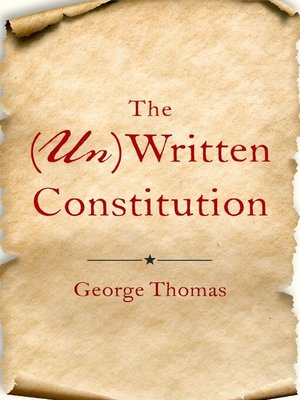
Sign up to save your library
With an OverDrive account, you can save your favorite libraries for at-a-glance information about availability. Find out more about OverDrive accounts.
Find this title in Libby, the library reading app by OverDrive.



Search for a digital library with this title
Title found at these libraries:
| Library Name | Distance |
|---|---|
| Loading... |
Illuminates the unwritten ideas that underlie our deepest debates about the written Constitution. The late Justice Scalia relished pointing to departures from the written text of the Constitution as a departure from Constitutional law itself, but in fact his own jurisprudence relied on unwritten ideas. Given that Scalia's "textualist" approach to constitutional interpretation has become even more prominent in recent years with the elevation of Justices Gorsuch, Kavanaugh, and Barrett—all jurists in the mold of Scalia—to the Supreme Court, it is crucial that the public understands that these textualists all rely on unwritten ideas when they interpret the Constitution. Indeed, our most intense debates about America's written Constitution are not about constitutional text, but about the unwritten ideas and understandings that guide our reading of the text. In The (Un)Written Constitution, George Thomas makes these ideas visible by turning to the practices of Supreme Court justices and political actors in interpreting the Constitution over more than two centuries. From founding debates about freedom of speech and religion to contemporary arguments about judicial review, the separation of powers, same—sex marriage, and partisan gerrymandering, he highlights the too—often unacknowledged ideas that animate our debates about the written Constitution. Contrary to the self-identified textualists, Thomas argues, these recurrent debates are not about whether to follow the text. Rather, they are disputes about what fidelity to the text requires. Illuminating how moving beyond the text is an inescapable feature of interpreting the written Constitution, this concise primer on constitutional interpretation forces us to consider the text—and the unstated principles that lie beneath it-in a new light.







